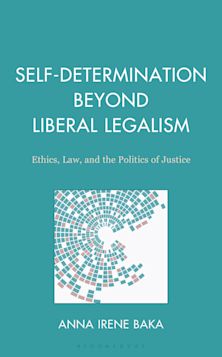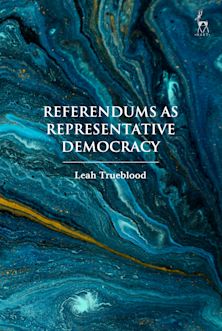- Home
- ACADEMIC
- Law
- Human Rights
- Race, Wrongs, and Remedies
Race, Wrongs, and Remedies
Group Justice in the 21st Century
Race, Wrongs, and Remedies
Group Justice in the 21st Century
This product is usually dispatched within 2-4 weeks
- Delivery and returns info
-
Flat rate of $10.00 for shipping anywhere in Australia
You must sign in to add this item to your wishlist. Please sign in or create an account
Description
Black Americans continue to lag behind on many measures of social and economic well-being. Conventional wisdom holds that these inequalities can only be eliminated by eradicating racism and providing well-funded social programs. In Race, Wrongs, and Remedies, Amy L. Wax applies concepts from the law of remedies to show that the conventional wisdom is mistaken. She argues that effectively addressing today's persistent racial disparities requires dispelling the confusion surrounding blacks' own role in achieving equality.
The evidence overwhelmingly suggests that discrimination against blacks has dramatically abated. The most important factors now impeding black progress are behavioral: low educational attainment, poor socialization and work habits, drug use, criminality, paternal abandonment, and non-marital childbearing. Although these maladaptive patterns are largely the outgrowth of past discrimination and oppression, they now largely resist correction by government programs or outside interventions. Wax asserts that the black community must solve these problems from within. Self-help, changed habits, and a new cultural outlook are, in fact, the only effective tactics for eliminating the present vestiges of our nation's racist past.
Published in cooperation with the Hoover Institution
Table of Contents
Chapter 2 Chapter 1. The Remedial Ideal and the Demand for Racial Justice
Chapter 3 Chapter 2. Group Disadvantage and the Case of Race
Chapter 4 Chapter 3. Racial Disparities and Human Capital Deficits
Chapter 5 Chapter 4. The Psychology of Victimization
Chapter 6 Is Self-Help Possible?
Chapter 7 Reparations, Affirmative Action, and the Relationship of Race and Class
Chapter 8 Notes
Chapter 9 Index
Product details
| Published | 16 Jul 2009 |
|---|---|
| Format | Hardback |
| Edition | 1st |
| Extent | 196 |
| ISBN | 9780742562868 |
| Imprint | Rowman & Littlefield |
| Dimensions | 238 x 161 mm |
| Series | Hoover Studies in Politics, Economics, and Society |
| Publisher | Bloomsbury Publishing |
About the contributors
Reviews
-
(Amy Wax) reviews a great deal of social science data showing the pallid or perverse effects of policies aimed at teenage pregnancy, education, job training, prison rehabilitation, and many more.
American Lawyer
-
Amy Wax's Race, Wrongs, and Remedies is a provocative discussion of policies to close the race gap in America. Using the insightful legal distinction between liability and remedy, she shows that self-help can be a powerful force for remediating social wrongs. This book will help change the dialogue of race in America from a discussion about passive victims, guilt, and reparations to a more active embrace of individual responsibility and human agency. Its message is bold and clear.
James J. Heckman, professor of economics, The University of Chicago
-
Professor Wax's book is the quintessence of cool, clean, and unassailable good sense. One is to be pardoned for wondering whether the most important book on race of the year could be one by a white female law professor. Well, one need wonder no more-it is.
The New Republic
-
Amy L. Wax combines conceptual insights from the law of torts and remedies with a thorough reading of the scholarship on racial disparities to bring much-needed clarity to the discussion of the black man's burden.
Claremont Review of Books
-
Wax combines conceptual insights from the law of torts and remedies with a thorough reading of the scholarship on racial disparities to bring much-needed clarity to the discussion of the black man's burden.
The Claremont Review Of Books
-
Every officer in the Department of Families, Housing, Community Services and Indigenous Affairs should read this book. Indeed, every federal or state public servant delivering services to, and/or making policy for Aborigines should think deeply about the applicability to Aborigines of Amy Wax's insights into the plight of black Americans.
Public Administration

ONLINE RESOURCES
Bloomsbury Collections
This book is available on Bloomsbury Collections where your library has access.



































